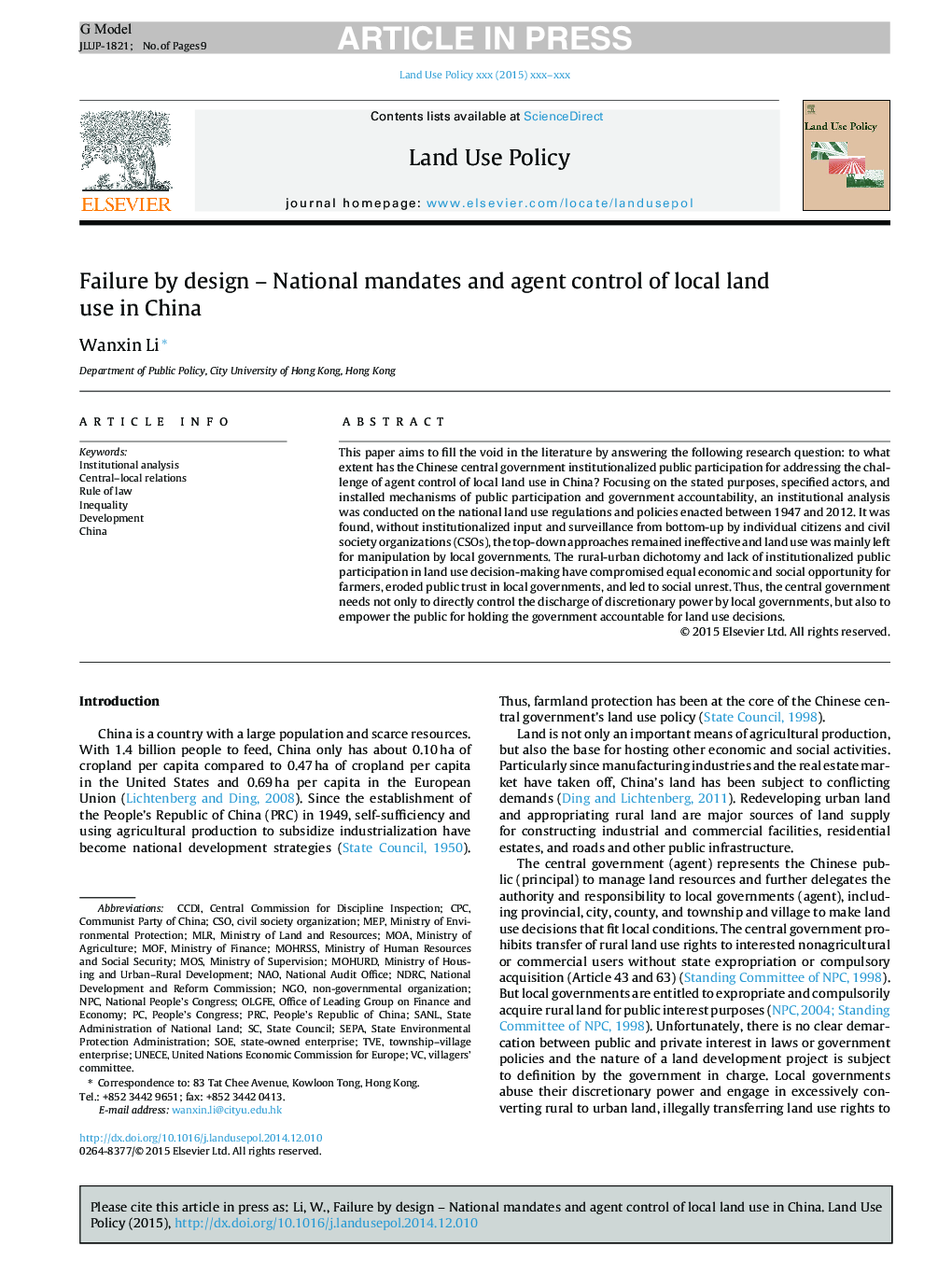| Article ID | Journal | Published Year | Pages | File Type |
|---|---|---|---|---|
| 6547528 | Land Use Policy | 2016 | 9 Pages |
Abstract
This paper aims to fill the void in the literature by answering the following research question: to what extent has the Chinese central government institutionalized public participation for addressing the challenge of agent control of local land use in China? Focusing on the stated purposes, specified actors, and installed mechanisms of public participation and government accountability, an institutional analysis was conducted on the national land use regulations and policies enacted between 1947 and 2012. It was found, without institutionalized input and surveillance from bottom-up by individual citizens and civil society organizations (CSOs), the top-down approaches remained ineffective and land use was mainly left for manipulation by local governments. The rural-urban dichotomy and lack of institutionalized public participation in land use decision-making have compromised equal economic and social opportunity for farmers, eroded public trust in local governments, and led to social unrest. Thus, the central government needs not only to directly control the discharge of discretionary power by local governments, but also to empower the public for holding the government accountable for land use decisions.
Keywords
SEPATVECPCMOAMOSNPCPRCCSOMEPNDRCSOEMLRMOFUNECEMinistry of AgricultureInstitutional analysisPeople's Republic of ChinaRule of LawDevelopmentCivil society organizationnon-governmental organizationNGOMOHURDState-owned enterpriseInequalityNAOMinistry of FinanceMinistry of Environmental ProtectionChinaUnited Nations Economic Commission for EuropeNational Development and Reform Commission
Related Topics
Life Sciences
Agricultural and Biological Sciences
Forestry
Authors
Wanxin Li,
